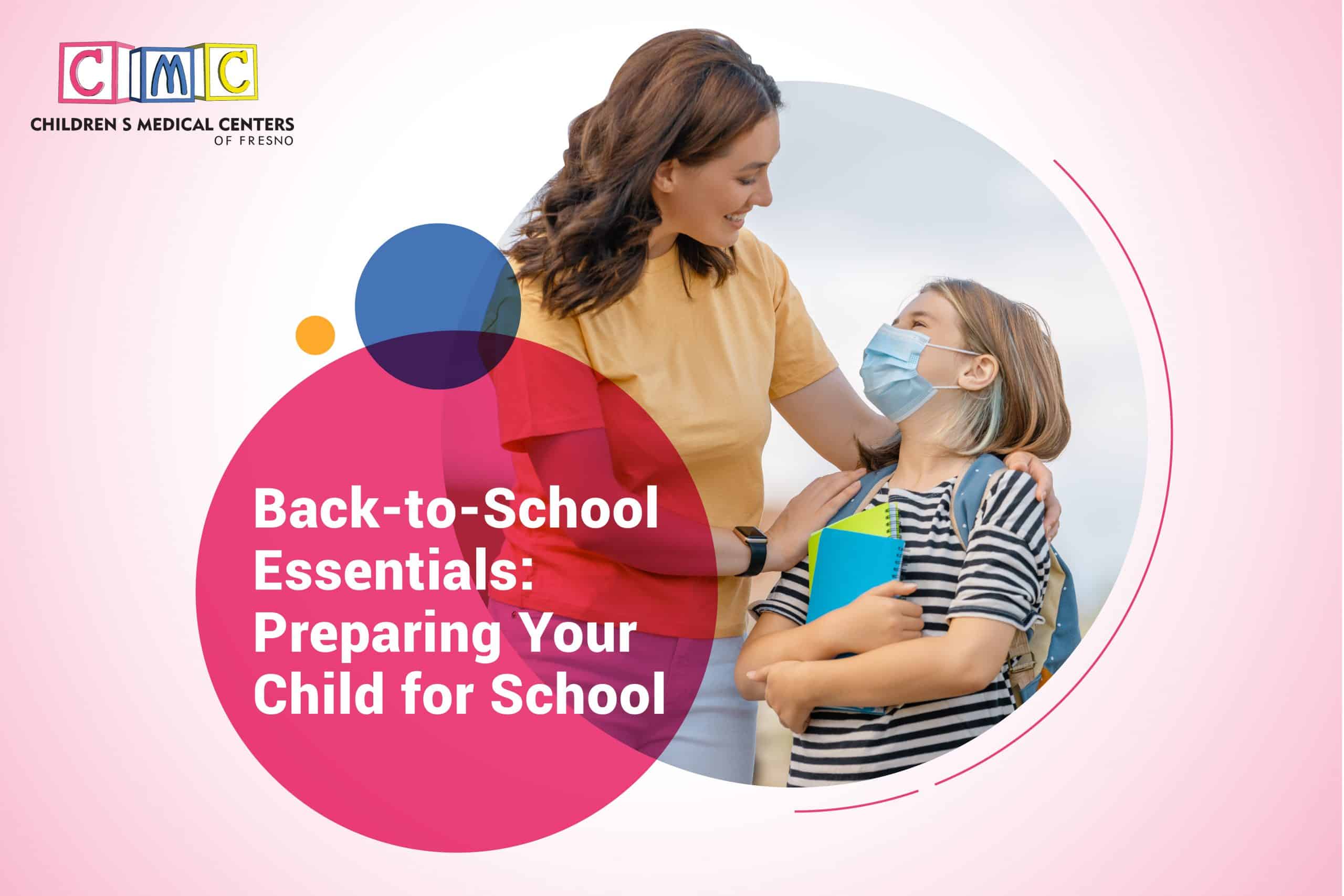Students and parents are gearing up for returning to school following more than a year of school closures, e-learning, and hybrid learning. Children usually have adjusting difficulties during the first few weeks of school, but COVID-19 poses a greater challenge this year. Adapting to new rules, procedures, and norms will require more preparation.
CMCFresno has put together a list of tips for going back to school to get your child started on the right foot for the school year.
Getting Back to School Amid the Pandemic
There are many factors to consider when making this decision, from your child’s mental health to the safety policies of your school district. Preparation and proactiveness, especially when it comes to the health of your child, can give you peace of mind. Before school starts back, be sure to do the following:
Go for A Complete Physical Exam
Remember to take your children for a complete checkup with a pediatrician. You can also ask about child care during COVID-19. By checking the development and growth of your child and by determining your child’s medical history, you can ensure your child is in good health to return to school.
Make Sure Your Child’s Immunizations are Up-to-date
Many children missed routine checkups and vaccinations during the pandemic. To comply with school immunization requirements and stay protected from vaccine-preventable diseases such as whooping cough and measles, ensure your child catches up on their immunization schedule. Children age 5 and older are also eligible and recommended for the COVID-19 vaccine.
Request Medical Authorization Forms
It is mandatory for students who regularly take medication to complete an authorization form to receive it at school. Documents such as these require the signature of a child’s physician and can be completed during a physical exam.
Discuss Health and Safety Protocols with The School
Many schools follow CDC guidelines to protect both students and staff against the virus. Ask your school what measures they will take to limit Coronavirus infections and actively support any new policies they will impose.
For safety reasons, it may be unsafe to return to school for immunocompromised students. Talk to your school about the learning options available and consult your pediatrician for any expert advice. Also, ask about the option of remote learning during unavoidable absences or prolonged absences due to COVID-19.
Help your Child Transition to In-person Learning
Children’s mental and emotional health is also affected because of the pandemic. The first few days of school can make your child nervous or anxious. To make the transition to school easier, it is essential to let your child know what to expect. Give your child space and time to express their feelings.
Keeping in touch with them through communication will help you address any confusion and anxiety. It’s also an excellent way to make sure they are adapting well to changes in in-person learning. Empathize with them and acknowledge that worry and feeling overwhelmed are perfectly normal emotions.
Tips to Ensure Your Child’s Safe Return to School
In preparing for your child’s return to school, these back-to-school tips will make sure your child is safe and ready to thrive in the upcoming academic year:
Educate your child about infection prevention measures.
Make sure that you use language and information that your child can understand. Talking through scenarios and asking them what they will do can help children navigate risky situations at school. Another way to ensure that everything is clear and you’re confident what they’re doing is correct is to demonstrate and then practice it with them.
- Importance of physical distancing and no-contact greeting
- Teach your child the importance of frequent and proper handwashing
- Teach coughing and sneezing etiquette
- Emphasize the importance of wearing masks
- Proper disposal of masks
Make a “safety kit” for them.
Apart from buying certain necessities for school like books and school supplies, you must also make a safety kit for your child. The kit contains different items to help protect your child against the virus. Make sure they bring it to school every day.
- Hand sanitizers: A personal hand sanitizer will help keep your child’s hands clean when hand washing is not possible. You can choose mini hand sanitizer containers that you can attach to your child’s backpack.
- Water bottle: It is common for schools to turn off their water fountains as a precaution this year to prevent the spread of germs and viruses, like COVID-19. Make sure your child has a water bottle so they can stay hydrated.
- Tissue: Travel size tissues are useful if so your child avoids touching your eyes, mouth, nose, or high-touch surfaces with bare hands.
- Face Masks: You should provide two or three masks, so your child always has a backup in case one gets dirty or sweaty. Your child’s mask should fit securely over their nose and mouth to prevent droplets from getting in.
Put a personalized label on their things.
Label what your child brings to school, such as their water bottles, school supplies, lunches, backpacks, coats, and masks, so they don’t mix up with other students’ belongings. This way, virus contamination is not likely. Be sure that your child understands that they cannot share food and belongings with anyone at this time.
Establish a back-from-school safety protocol.
When your children return from school, you should also ensure that your house is safe from infection. Upon arrival, have them remove all clothing and shoes, masks and bags, and put them in the laundry or a designated area for disinfection. Afterward, let them shower and put on clean clothes.
Do a daily symptoms check with your child.
Check your children every morning for COVID-19 related symptoms. Keep your child at home and get their test done if they show indicators of COVID-19 or other infectious illnesses. You can find more information about Covid-19 symptoms here.
Get your child back on a regular sleep schedule.
While on vacation, children tend to break their sleep routine. Preparing for school means you should gradually bring your children back into their normal sleeping patterns a few weeks before school starts. Sleeping 8 to 12 hours a night is essential for them. The energy they get from a good night’s sleep will prepare them to do their best in school.
Help your child build a stronger immune system
Having a robust immune system is the best way to prevent contracting viruses and other contagious diseases. Making sure your child eats a healthy diet can help strengthen their ability to fight off sickness. Reduce or control your child’s consumption of processed, sugary, and salty foods. In addition, it is important to ensure that children get at least eight hours of sleep every night.
Check-in With Your Pediatrician
Give priority to a child’s health as part of preparing for school. By doing our tips and going over each factor in detail, you can ensure your child stays safe and make the transition back to school less difficult. Call or schedule your child’s appointment with us to kick off the school year on a healthy note! CMCFresno provides quality healthcare and support to children of the Central Valley.
Additional Back to School Resources for Parents:



